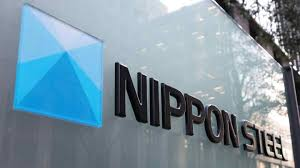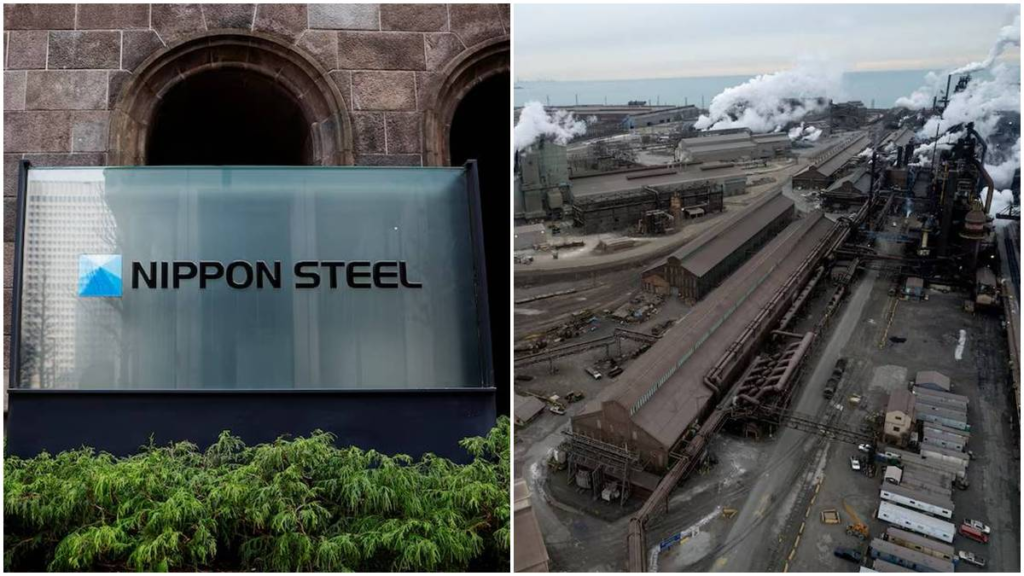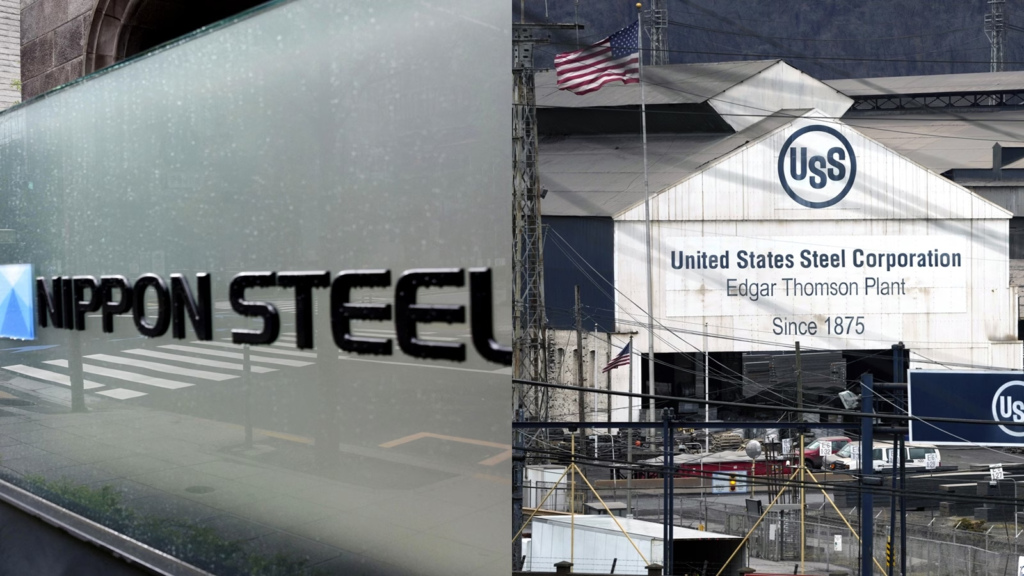In a significant development for the American steel industry, United States Steel Corporation (U.S. Nippon Steel) has seen its shares soar following President Donald Trump’s approval of a “planned partnership” with Japan-based Nippon Steel. The announcement, made on May 24, 2025, signals the resolution of long-standing regulatory hurdles surrounding Nippon Steel’s $14.9 billion bid to acquire the iconic Pittsburgh-based steelmaker. This deal not only ensures that U.S. Steel’s headquarters will remain in Pittsburgh, Pennsylvania, but also promises substantial investments and job creation, sparking optimism among investors and local communities alike.

A Turnaround for U.S. Steel
U.S. Steel’s stock surged by 21% on May 24, 2025, reaching $52.01 per share, with after-hours trading pushing the value even closer to Nippon Steel’s original offer of $55 per share from December 2023. According to Reuters, investors interpreted Trump’s announcement on Truth Social as a green light for the acquisition, marking the end of a contentious 17-month saga filled with regulatory scrutiny and political debate. Morgan Stanley analysts have maintained an Equal Weight rating on U.S. Steel, predicting that the stock could climb toward $55, aligning with their bull case scenario.
The deal’s approval comes after a rollercoaster of opposition and negotiations. Former President Joe Biden had blocked Nippon Steel’s initial acquisition attempt in January 2025, citing national security concerns over foreign ownership of a critical U.S. industry. The Committee on Foreign Investment in the United States (CFIUS) conducted a thorough review, with concerns raised about potential risks to domestic steel supply chains. However, President Trump ordered a new review in April 2025, signaling a willingness to reconsider the deal under certain conditions. His recent endorsement suggests a shift from outright acquisition to a “partnership” model, though the exact ownership structure remains unclear.
What the Partnership Means
While the term “partnership” has sparked some ambiguity, industry experts and investors believe it indicates a modified deal that allows Nippon Steel to invest heavily in U.S. Steel without full ownership. According to CNBC, Nippon Steel has committed to investing $14 billion over the next 14 months, including $2.4 billion to modernize U.S. Steel’s operations at Mon Valley Works near Pittsburgh. An additional $2.7 billion has been pledged to upgrade facilities in Pennsylvania and Indiana, on top of an earlier $1.4 billion commitment. These investments are expected to modernize aging infrastructure, boost production capacity, and create an estimated 70,000 jobs across multiple states.

The decision to keep U.S. Steel’s headquarters in Pittsburgh has been a focal point of the agreement. President Trump emphasized this in his Truth Social post, stating, “U.S. Steel will REMAIN in America, and keep its Headquarters in the Great City of Pittsburgh.” This assurance addresses concerns raised by U.S. Steel’s CEO, David Burritt, who warned in September 2024 that blocking the deal could force the company to pivot operations southward and potentially relocate its headquarters. For Pittsburgh, a city with a storied steelmaking heritage, retaining the headquarters is a symbolic and economic win.
Josh Spoores, head of steel Americas analysis for CRU, told AP News that Trump’s announcement appears to be a “green light for the acquisition,” albeit with safeguards to ensure U.S. control. One such safeguard may involve the U.S. government holding a “golden share,” granting veto power over key management decisions. This provision, reported by Reuters, aims to balance foreign investment with national interests, ensuring that U.S. Steel remains a vital part of America’s industrial landscape.
Overcoming Regulatory and Union Hurdles
The path to this partnership was fraught with challenges. The United Steelworkers (USW) union, a powerful voice in the steel industry, initially opposed Nippon Steel’s bid, citing concerns over job security and foreign control. The union’s influence was evident when Biden blocked the deal, aligning with their stance. However, Trump’s administration has worked to address these concerns, emphasizing job creation and domestic production. USW President David McCall, while cautiously optimistic about the partnership, has called for stronger guarantees to protect long-term U.S. jobs. He plans to attend a rally at U.S. Steel’s Pittsburgh headquarters on May 30, 2025, to discuss the agreement with workers.
The deal also faced political headwinds during the 2024 presidential campaign, with both Biden and Trump initially expressing reservations about foreign ownership. Trump’s earlier statements, including a February 2025 comment that he would not mind Nippon Steel taking a minority stake, hinted at a compromise. The Trump administration’s motion in March 2025 to extend deadlines in a lawsuit filed by U.S. Steel and Nippon Steel against CFIUS allowed time for merger talks to progress. This strategic shift has paved the way for the current partnership framework, which appears to have won over key stakeholders.

Economic and Industry Implications
The partnership is poised to have far-reaching effects on the U.S. steel industry and the broader economy. Nippon Steel, the world’s fourth-largest steelmaker, brings advanced technology and global market access to the table. According to Bloomberg, Nippon’s leadership sees the U.S. market as a growth opportunity, especially given the saturated domestic market in Japan and fierce competition in Asia. By investing in U.S. Steel, Nippon aims to strengthen its global footprint while supporting American manufacturing.
For U.S. Steel, the influx of capital will enable critical upgrades to its facilities, enhancing competitiveness in a market where steel prices have risen 20% since Trump’s announcement of steel tariffs. Analysts like Morgan Stanley believe these investments will position U.S. Steel for long-term profitability, even as it navigates the complexities of global trade dynamics. The promise of 70,000 jobs, as highlighted by Trump, could also bolster local economies in steel-producing regions like Pennsylvania and Indiana.
However, some questions remain unanswered. The exact terms of the partnership, including the extent of Nippon Steel’s ownership and the role of the U.S. government’s “golden share,” are yet to be fully disclosed. Investors are confident that shareholders will receive a cash payout similar to the $55-per-share offer from 2023, after which U.S. Steel may no longer be publicly traded. The White House has not provided detailed clarification, with spokesperson Kush Desai simply stating that Trump looks forward to celebrating “American Steel and American Jobs” at the Pittsburgh rally on May 30.
Pittsburgh’s Steelmaking Legacy
Pittsburgh’s identity is deeply tied to steelmaking, with U.S. Steel’s formation in 1901 marking a milestone in the city’s industrial history. The company, once the world’s first billion-dollar corporation, powered America’s growth through the 20th century, from building automobiles to supporting post-World War II reconstruction. The partnership with Nippon Steel is seen by many as a way to preserve this legacy while adapting to modern economic realities. As one investor told Reuters, “This deal ensures that steelmaking will live on in Pittsburgh for generations.”
The announcement has also sparked local enthusiasm. Trump’s planned rally at U.S. Steel’s Pittsburgh headquarters is expected to draw significant attention, reinforcing the city’s role as a hub of American industry. Community leaders and workers are hopeful that the promised investments will revitalize the Mon Valley, where U.S. Steel’s operations have long been a cornerstone of the economy.
Looking Ahead
As the partnership moves forward, all eyes will be on the details of the agreement and its implementation. The $14 billion investment, coupled with job creation and infrastructure upgrades, positions U.S. Steel for a new chapter of growth. For investors, the sharp rise in shares reflects confidence in the deal’s potential to deliver value. For Pittsburgh, the retention of U.S. Steel’s headquarters is a victory for local pride and economic stability.
The coming months will reveal whether this partnership can deliver on its promises while navigating the complexities of global trade, labor concerns, and national security. For now, the approval of Nippon Steel’s bid marks a pivotal moment for U.S. Steel and the American steel industry, blending tradition with innovation to forge a stronger future.
Also Know :- Dow Surges 740 Points on Eased Trade Tensions, Marking Best Day in 2025






